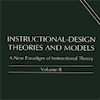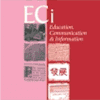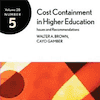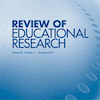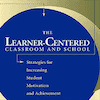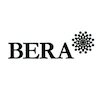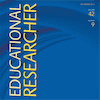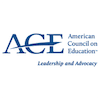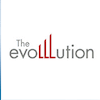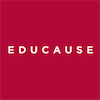Core Beliefs
Our Core Beliefs Are Informed By The Latest In Educational Research
Fidelis’ platform has a perspective that is based on our core beliefs as a company. Our beliefs are supported by a combination of our personal experience, common sense, and research from both academic and commercial sources.
We believe that people learn best when:
- They have clear and important long-term objectives for their education
- They are embedded in a community of learners who are at various stages of mastering a field
- They have a personalized learning plan that sets incremental goals that build toward their long-term objectives
- They are coached and mentored by a combination of professionals, personal mentors, role models, and career guides
- They can earn badges and micro-credentials that signify the capabilities that they’ve learned through the course of their studies.
- Learning app content is delivered via a combination of reading, visual, auditory materials
- Individual courses have opportunities for in-course community engagement (learning app)
- Both formative and summative assessments are integrated throughout a learning experience
- There are major exams that require intense study and have credentialing consequences that impact employment (badge exams)
Supporting Articles
We’ve assembled a list of studies, grouped by topic, that support the beliefs stated above. This is a continuous effort, so please feel free to contact us with any suggestions.

Long-Term Objectives
The Single Best Idea for Reforming K-12 Education
Steve Denning – Forbes, 2011
“The single best idea for reforming the k12 system is to change the goal from teaching a curriculum more efficiently to inspiring lifelong learning in students so that they are able to have full and productive lives in a rapidly changing economy.”
Pathways Linking Education and Work: A Review of Concepts, Research, and Policy Debate
Daniel Raffe – Journal of Youth Studies, Vol. 6, Iss. 1, 2003
“This paper reviews cross-national research and policy debates about pathways between education and work, and draws on this review to reflect on the utility of the pathways concept itself. “
Crazy Paving or Stepping Stones? Learning Pathways within and between Vocational Education and Training and Higher Education
Roger Harris, Linda Rainey, Robert Sumner – National Centre for Vocational Education Research, 2006
“This study focuses on the pathways–to and fro–between vocational education and training (VET) and higher education. It is predominantly qualitative. The report reveals the richness and complexity of ways individual learners use and exploit available options.”
Learning Communities
Learning Communities in Classrooms: A Reconceptualization of Education Practice
Katerine Bielaczyc, Allan Collins – Instructional-design Theories and Models: A New Paradigm of Instructional Theory, Vol. 2, 2013
“In this anthology of scholarly works in the field of learning theory, the authors make the case for learning communities being essential to both the field and the individual master of the field.”
Building Learning Communities in Online Courses: The Importance of Interaction
Karen Swan – Education, Communication & Information, Vol. 2, Iss. 1, 2002
“Reports on student satisfaction, learning outcomes, and interaction quality for asynchronous classes. The findings support the need for community engagement.”
The Powerful Potential of Learning Communities: Improving Education for the Future
Oscar T. Lenning, Larry H. Ebbers – ASHE-ERIC Higher Education Report, Vol. 26, No. 6, 1999
“This report examines the importance of learning communities within institutions of higher education. Benefits include higher academic achievement, better retention rates, diminished faculty isolation. “
Collaborative Learning in Asynchronous Learning Networks: Building Learning Communities
Starr Roxanne Hiltz – New Jersey Institute of Technology, 1998
“This paper presents evidence that collaborative learning strategies actively mentored by an instructor, are necessary to build social relationships and a sense of community in order for World Wide Web-based courses to be as effective as traditional classroom courses.”
A Review of Research on the Impact of Professional Learning Communities on Teaching Practice and Student Learning
Vicki Vescio, Dorene Ross, Alyson Adams – Teaching and Teacher Education, Vol. 24, Iss. 1, 2008
“After an overview of the characteristics of professional learning communities (PLCs), this manuscript presents a review of 10 American studies and one English study on the impact of PLCs on teaching practices and student learning.”
Personal Learning Plans
The Copernican Plan: Restructuring the American High School
Joseph Carroll – The Phi Delta Kappan, Vol. 71, No. 5, 1990
“By redploying its staff members and students so that teachers can concentrate on teaching students, not on “covering” classes, the American high school can transform itself”
The Learner-Centered Classroom and School: Strategies for Increasing Student Motivation and Achievement
Barbara L. McCombs, Jo Sue Whisler – Jossey-Bass, 1997
“Schools are living systems- systems fundamentally in service to students.”
Putting Words in Their Mouths: The Alignment of Identities with System Goals Through the Use of Individual Learning Plans
Mary Hamilton – British Educational Research Journal, Vol. 35, Iss. 2, 2009
“Individual Learning Plans, originally a means of formative assessment, have become part of a system of performance indicators and function as a key mediating mechanism between local interactions and system goals.”
Coaching And Mentoring
Mentoring and Undergraduate Academic Success: A Literature Review
Maryann Jacobi – Review of Educational Research, Vol. 61, No. 4, Winter 1991
“This article provides a critical review of the literature on mentoring, with an emphasis on the links between mentoring and undergraduate academic success.”
Students’ Perceptions of the Value and Need for Mentors As They Progress Through Academic Studies in Engineering and Science
MentorNet – A Report to the National Science Foundation, 2008
“This paper explores the overarching research question: ‘What are students’ perceptions of the value of and need for mentors as they progress through their academic studies in engineering and science?'”
Instructional Coaching: Professional Development Strategies That Improve Instruction
The Annenberg Institute – 2003
“Coaching is essential to educational improvement, defining coaching as facilitating and guiding content-focused professional learning for a school’s teachers.”
The Effects of Student Coaching: An Evaluation of a Randomized Experiment in Student Advising
Eric P. Bettinger, Rachel B. Baker – Educational Researcher, Vol. 42, No. 7, 2013
“We present evidence from a randomized experiment which tests the effectiveness of individualized student coaching.Coaching also proved a more cost-effective method of achieving retention and completion gains when compared with previously studied interventions such as increased financial aid.”
Badges And Micro-Credentials
Insights From OECD’s Survey Of Adult Skills On Workforce Readiness And Preparation
American Council on Education, 2014
“ACE’s report recommends aligning academic content with occupational goals, offering “stackable” credentials that allow students to show what they have learned, and embracing flexible schedules for teaching and learning.”
Digital Badges: Catalyst in the Evolution of Higher Education or “Killer App” for Alternatives?
Kyle Peck – The EvoLLLution, 2014
“We need to take assessment seriously, embracing the badging movement and setting the bar high, or accept the path to irrelevance.”
Digital Badges and Meaningful Micro-Credentials
Jonathan Finkelstein – Educause, 2012
“This transcript explores how informal and nontraditional learning environments are impacting how we think about education. In particular, we’ll discuss peer-to-peer learning trends and unpack the need for microcredentials and badge-empowered learning.”
Why We Need Competency-Based Education
Partnership for Global Learning – Asia Society, 2013
“Educators are increasingly getting behind a big idea: organize learning and recognize achievement based on students’ mastery of a defined set of competencies.”
Are You Competent? Prove It: Degrees Based on What You Can Do, Not How Long You Went
Anya Kamenetz – The New York Times, 2013
“In an environment of growing tuition and student debt, low-cost competency-based programs are sure to find an audience.”
Digital Badges for Learning
Secretary Arne Duncan – U.S. Department of Education, MacArthur Foundation Digital Media and Lifelong Learning Competition, 2011
“Badges empower students and teachers to play an even stronger role in their own learning and development – to seek out the right tools among many resources available, and in their fields of interest – and build a record of what they have mastered.”




